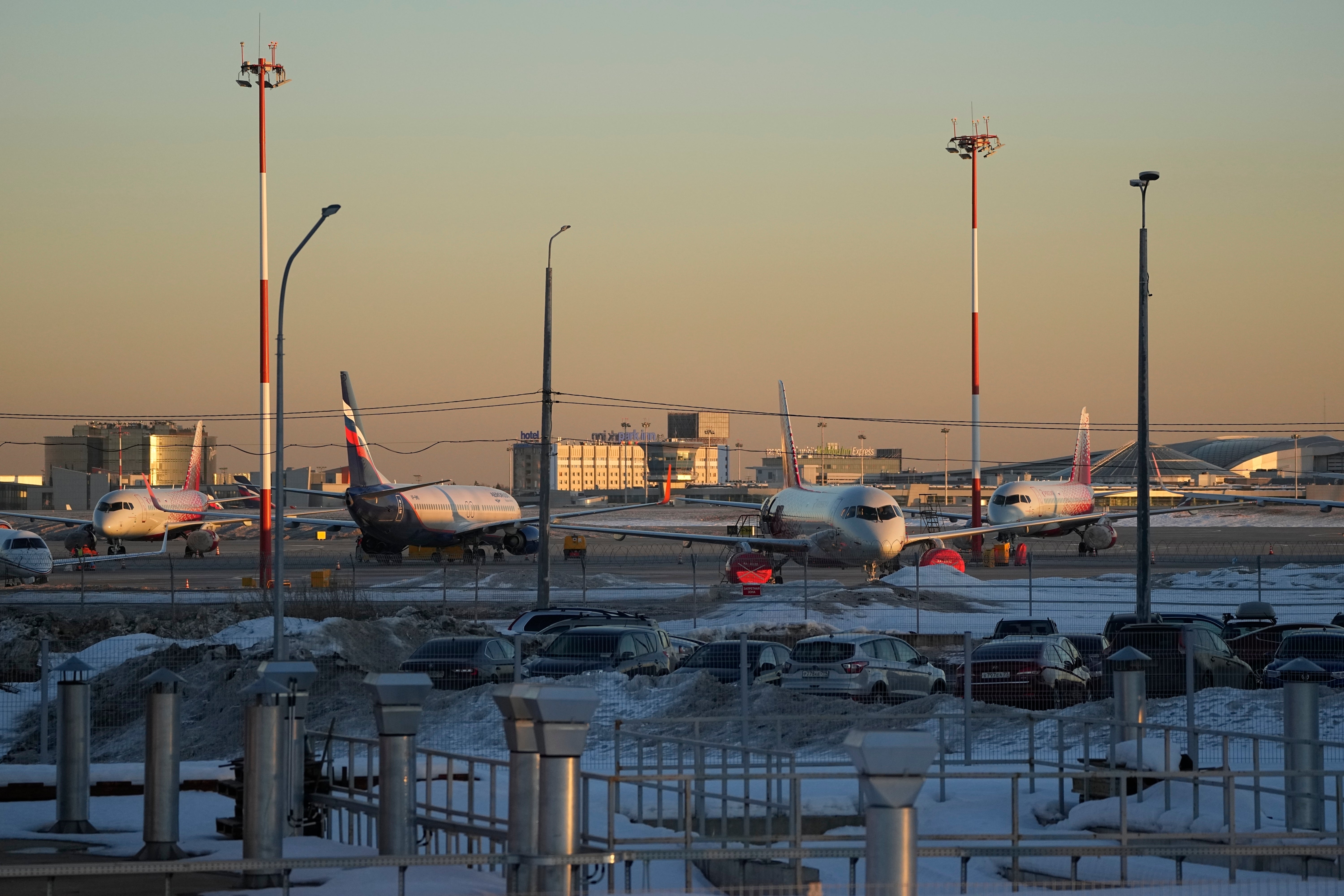Russian airlines will keep planes leased from foreign firms
Russian President Vladimir Putin has signed a law letting Russian airlines register planes leased to them by foreign companies and continue flying them

Your support helps us to tell the story
From reproductive rights to climate change to Big Tech, The Independent is on the ground when the story is developing. Whether it's investigating the financials of Elon Musk's pro-Trump PAC or producing our latest documentary, 'The A Word', which shines a light on the American women fighting for reproductive rights, we know how important it is to parse out the facts from the messaging.
At such a critical moment in US history, we need reporters on the ground. Your donation allows us to keep sending journalists to speak to both sides of the story.
The Independent is trusted by Americans across the entire political spectrum. And unlike many other quality news outlets, we choose not to lock Americans out of our reporting and analysis with paywalls. We believe quality journalism should be available to everyone, paid for by those who can afford it.
Your support makes all the difference.The fate of hundreds of planes leased by Russian airlines from foreign companies grew murkier Monday after Russian President Vladimir Putin signed a law letting the airlines register those planes and continue flying them.
Russian state media said the law will let Russian airlines keep their fleets and operate foreign planes on routes within Russia.
Many of the planes used by Russian airlines are leased from foreign companies, including several in Ireland, a member of the European Union. Last month, the EU banned the sale or leasing of planes to Russia as part of sanctions to punish Russia for invading Ukraine. It gave leasing companies until March 28 to end current contracts in Russia.
Last week, Russia’s air-transport agency advised airlines with foreign-registered planes not to take them out of the country because of the risk they could be repossessed.
Separately, sanctions prevent Western companies from providing spare parts and maintenance to Russian airlines, and analysts say it is unclear whether the planes are insured anymore.
Various estimates place the number of foreign-owned planes operated by Russian airlines at around 500 or more, and the vast majority of them were inside Russia when the war started Feb. 24. Aviation consulting firm Ishka estimates that the foreign-owned planes are worth $12 billion, nearly half of that by Irish-based lessors.
“We are in uncharted territory. We don't know if they will see these aircraft again,” said Helane Becker, an aviation analyst for financial-services firm Cowen. “Our guess is that (Russian carriers) use up whatever parts they have and then start cannibalizing (parts) to keep aircraft flying, and when this is over everything gets sorted out.”
According to aviation consultant IBA, the company with the most exposure to the war is Dublin-based AerCap, with 152 planes valued at nearly $2.4 billion that are flying, parked or stored in Russia or Ukraine.
A spokeswoman for AerCap said 5% of its fleet by value is in the hands of Russian carriers. She referred to a Feb. 28 filing in which the company said it would comply with the wind-down of leasing planes to Russian airlines, and declined to comment further.
A spokesman for another Irish lessor, SMBC Aviation Capital, said the company has 35 planes in Russia — IBA valued them at about $1.4 billion — and has issued termination notices for all leases with Russian airlines. The spokesman said the company “is engaged with all relevant authorities,” but declined to comment further.
Other companies declined to comment or did not immediately respond.
There are more than 100 aircraft-leasing companies, many of them too small to survive if they lose more than one or two planes, according to Vance Hilderman, CEO of AFuzion, an airline consulting firm based in Los Angeles.
“In the old days, Russia would kind of let you in. You'd bring a couple pilots in and you would repossess the aircraft at night, kind of undercover,” Hilderman said. “But this is going to spur a whole new business of cat and mouse. The stolen aircraft won't be leaving Russian airspace.”
Hilderman said that for the few remaining flights that leave the country — to Turkey and places in the Middle East and Asia — Russian airlines will only use planes that they own or lease from Russian lessors.
Becker, the Cowen analyst, said the law that Putin signed violated a decades-old treaty called the Chicago Convention that allows lessors to cross international borders and take back planes from defaulting customers.
Last week, Fitch Ratings warned that debt backed by leases of planes now in Russia faced potential downgrades because of the difficulty of the risk that state-owned airlines might stop making payments “or ‘confiscate’ (i.e. theft) aircraft.” Fitch said several lessors moved a few planes out of Russia and Ukraine before sanctions were announced.
Sanctions are also affecting the world’s two leading aircraft manufacturers, U.S.-based Boeing and Europe’s Airbus. According to JPMorgan, Boeing has 35 of its 737 Max and 777 cargo planes on order by Russian airlines, including 30 that were scheduled to be delivered this year, and Airbus has orders for 27 planes from Russian airlines, with seven expected to be delivered this year.
___
Associated Press Staff Writer Kelvin Chan in London contributed to this report.